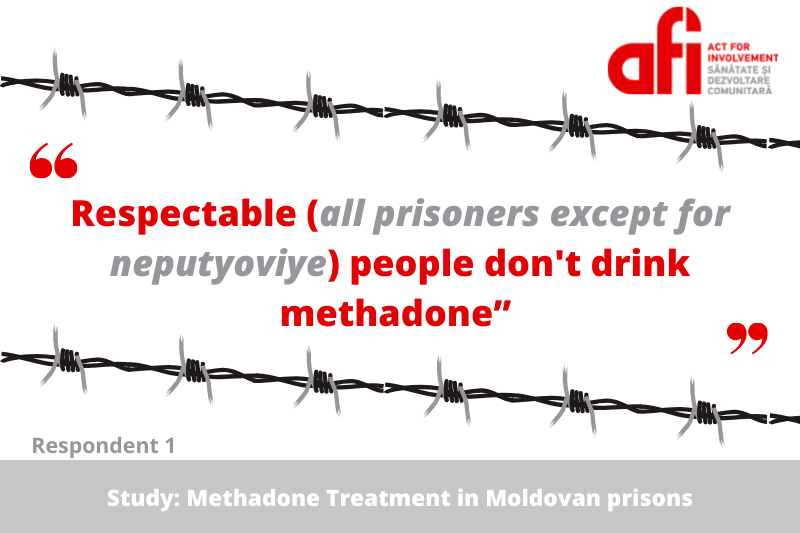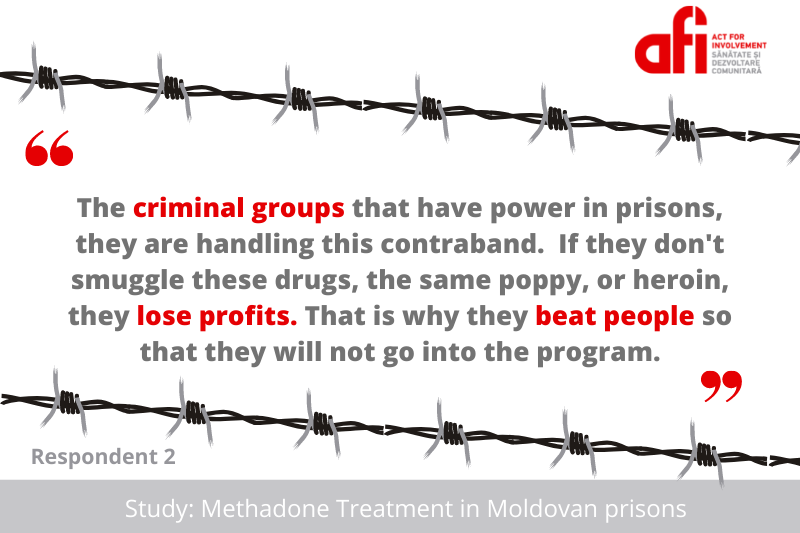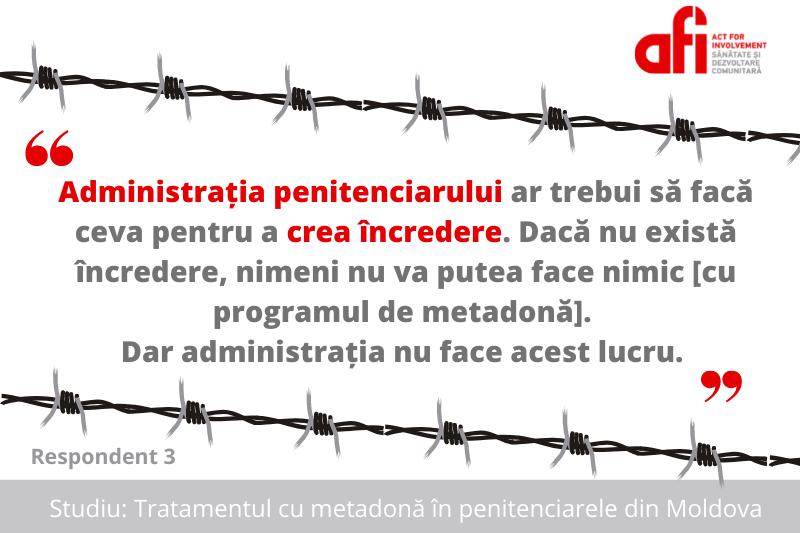News
Multi-level implementation factors influencing the expansion of methadone maintenance treatment in prisons in Moldova: A qualitative study
People who use drugs are over-represented in prisons across Europe, particularly in Eastern Europe and Central Asia, where criminal justice systems are overcrowded and under-resourced.
In collaboration with Yale University and the London School of Hygiene and Tropical Medicine, AFI Moldova conducted a qualitative study on methadone pharmacological treatment in Moldovan prisons. The research conducted in 2014 consisted of interviewing 44 former prisoners recently released from detention with opioid use disorders, who either accepted or rejected methadone pharmacotherapy while in detention. The same respondents were part of a subset of 56 participants in a quantitative survey that supplemented information collected during interviews.
This study highlighted a number of social and individual barriers to accepting methadone treatment in Moldovan prisons:
1) negative personal attitudes towards methadone treatment;
2) stigmatisation of methadone treatment by informal prison hierarchies;
3) distrust of the formal prison hierarchy (administration) providing methadone treatment.
Quotes from interviews:



Taken together, these findings strongly suggest that inmates' decisions to initiate pharmacological methadone treatment are frequently independent of the benefits of therapy for inmates with opioid dependence and, instead, largely dependent on the social influence of the inmate hierarchy that dominates the prison environment.
See the full article: Multi-level implementation factors that influence scale-up of methadone maintenance treatment in Moldovan prisons: A qualitative study - ScienceDirect
Other news
- 18 July 2022Ensuring access for psychological, sexual reproductive health and HIV prevention services for Adolescent Girls and Young Women refugees with a focus on key and vulnerable populations (people living with HIV, children and adolescents, women etc)
- 19 June 2022Assessment of the level of training of sex workers in Chisinau (capital of the Republic of Moldova) in Community Mobilization, including involvement in HIV control measures
- 14 April 2022A pilot implementation study to scale-up methadone in incarcerated persons with opioid use disorder and retain them on treatment after release in Moldova
